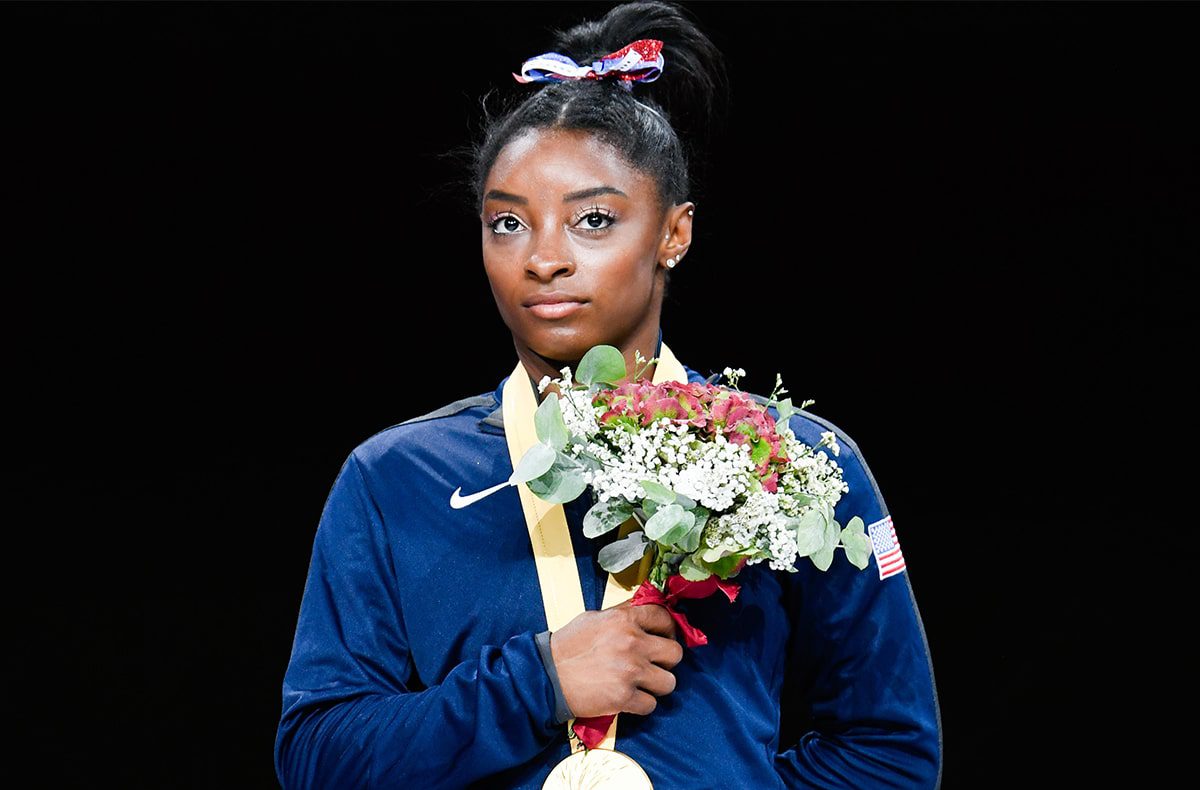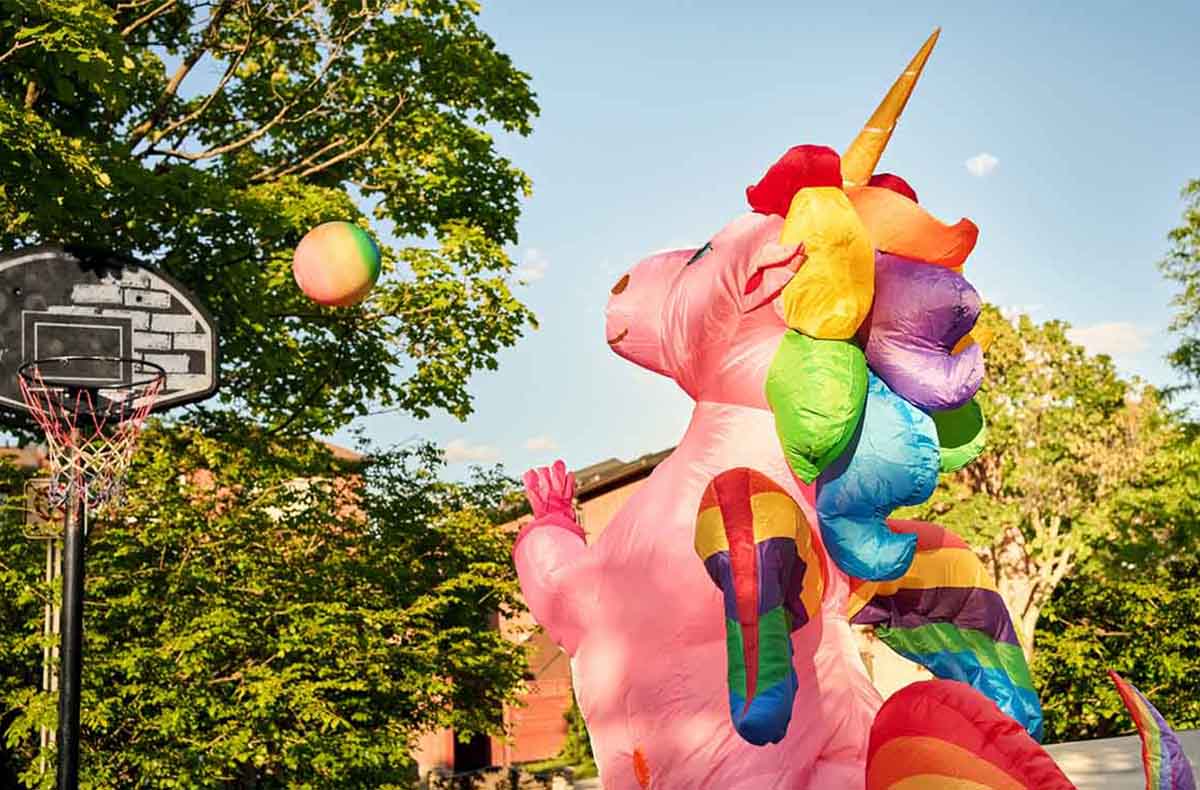
In sports, the experience of a competitor achieving the championship of competition is a story of wins and losses. Earning the distinction of “champion” carries with it the legacy of the competitors who have pursued the same level of excellence. In the sport of gymnastics, Simone Biles’ dominance has been so consistent and pervasive, that she is held in the same esteem as the greatest of Olympic legends such as Michael Phelps (Swimming) and Usain Bolt (Track & Field).
Each of those athletes has sustained excellence in the Olympics and created legacies as sports competitors at the highest levels. Biles’ exploits in global competitions have redefined the expectations of women in not only gymnastics but sports overall. In particular, she was the first woman to complete the amazingly difficult Yurchenko Double Pike vault in active competition. The world was her oyster heading into the Tokyo 2020 Olympics as she was the favorite to break records and cement her legacy as a global megastar.
When Simone Biles decided to remove herself from the team and individual gymnastics competitions during the Tokyo 2020 games it sent shockwaves through the Olympics. Biles was the reigning Olympic and World Champion and multi-time medalist in team and individual events. She was considered the competitive favorite and the darling of the Olympic games. After her withdrawal, she was labeled a quitter by critics who questioned her competitiveness and grit. In an attempt to defend herself, Biles conducted media interviews to explain the feeling of “twisties” that she was experiencing and the impact this was having on her ability to perform in peak conditions and not risk injury.
In Simone Biles’ case, mental health awareness was about putting her personal needs before the competition. I was confused by the media’s portrayal of Biles and the lack of regard for her responsible actions. Her maturity and professionalism in making the right choice should have been in the headlines from the media instead of “click bait” comments about quitting. If this was a male competitor who withdrew from the Olympics, I wonder if this would have gotten the same press coverage.
On March 13, 2022 Powerade released the Pause is Power commercial as a public service announcement for athletes taking a mental health break from the stress and pressure of high-level competitions. Simone was the star of the campaign and the most high-profile athlete. The campaign challenged the “win at all costs” mentality of sports competitions and sought to humanize the experience of top-level athletes who are battling mental health obstacles such as fatigue, depression, stress, and burnout. In the campaign, Biles speaks about “balance isn’t just about the beam” and the importance of mental health for athletes.
What I appreciated most about the Pause is Power campaign is the allyship of male advocates for mental health such as Chris Webber and Jason Williams from the NBA, Tottenham Hotspur head coach Antonio Conte (English Premier League), and Olympic diver Tom Daley, who stood with Simone Biles on this cause. The presence of these athletes supports and centers the cause of mental health.
The term load management is popular in the National Basketball Association (NBA) and is defined as taking intermittent breaks from competition to manage physical and mental exertion during the competitive season. Many of the top athletes such as LeBron James, Joel Embiid, Anthony Davis, and Kawhi Leonard have taken periodic breaks throughout the season to manage their physical and mental well-being. Additionally, Lebron James has spoken publicly about managing his mental health and “losing love for the game” in 2011. In the sport of tennis, when 22-time Grand Slam Champion Rafael Nadal decided against playing in the 2021 Wimbledon championships and the Tokyo 2020 Olympics to rest up from injuries and mental stress, there wasn’t the same backlash or outcry from the media about his absence from competition, in comparison to Simone Biles.
It’s a shame that when the top male athletes in the world struggle with mental health, it is glossed over and they are given accolades for their ability to rise like the mythical Phoenix. In the case of Simone Biles, she was guilty until proven innocent. Her athletic reputation was questioned and she had to once again prove her competitiveness.
The truth is there is no excuse for the mistreatment Simone Biles received during the Tokyo 2020 Olympics. Her mental fortitude and mettle were questioned even though she has achieved levels of success only Phelps and Bolt have experienced. This misogynistic behavior by the media does not protect female athletes as they compete at the highest levels. As I watched the Pause Is Power commercial all I could think about was how many times the media glossed over male athletes who have taken days off due to load management for a variety of reasons without questioning them.
This witch-hunt that Biles was subjected to was horrible and another obstacle that she had to face that her male counterparts did not have to deal with. Upon further research, I stumbled upon Biles’ controlling complexity series where she explains her history of managing her mental health and the perseverance, she has exemplified to reach the pinnacle of the sports world. The fact that this series exists is proof of her mental toughness and actual ability to persevere is proof of the mistreatment that exists for women in sports.
In the words of Simone Biles: “Getting up from a fall, or making a mistake, fueled my dedication and reinforced my passion.” Biles is a beacon of hope for any athlete battling mental health and managing an athletic career at the highest levels. In the end, misogyny from the media needs to be held accountable. In the case of Simone Biles and mental health, the media owes her an apology with the same vigor and boastfulness that they showcased during the Tokyo 2020 Olympics. She deserves her apology because she is not only a champion, but one of the greatest athletes of all time.


